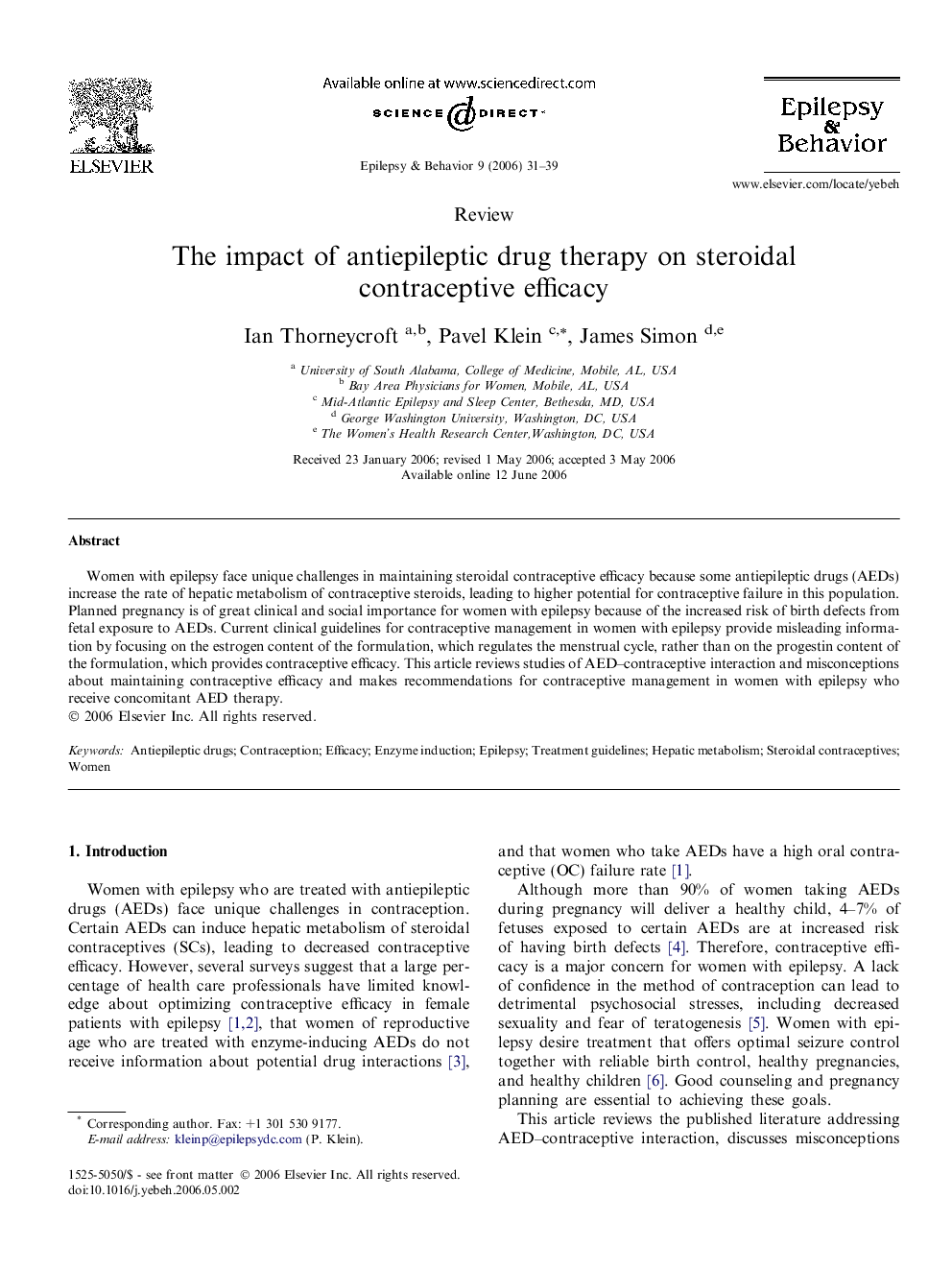| Article ID | Journal | Published Year | Pages | File Type |
|---|---|---|---|---|
| 3051466 | Epilepsy & Behavior | 2006 | 9 Pages |
Women with epilepsy face unique challenges in maintaining steroidal contraceptive efficacy because some antiepileptic drugs (AEDs) increase the rate of hepatic metabolism of contraceptive steroids, leading to higher potential for contraceptive failure in this population. Planned pregnancy is of great clinical and social importance for women with epilepsy because of the increased risk of birth defects from fetal exposure to AEDs. Current clinical guidelines for contraceptive management in women with epilepsy provide misleading information by focusing on the estrogen content of the formulation, which regulates the menstrual cycle, rather than on the progestin content of the formulation, which provides contraceptive efficacy. This article reviews studies of AED–contraceptive interaction and misconceptions about maintaining contraceptive efficacy and makes recommendations for contraceptive management in women with epilepsy who receive concomitant AED therapy.
